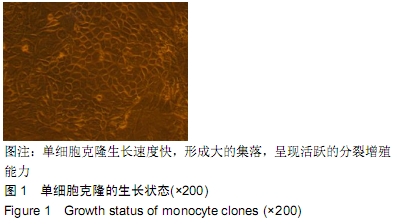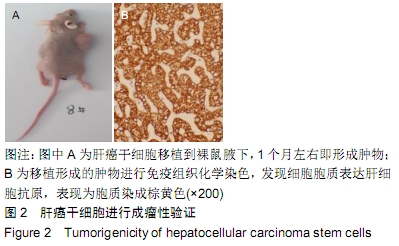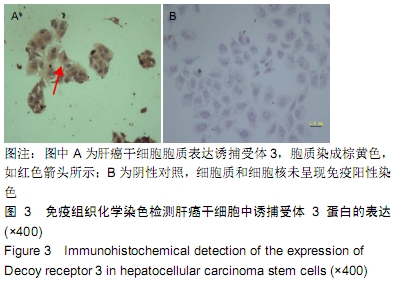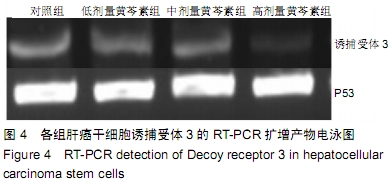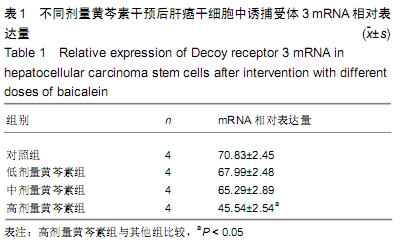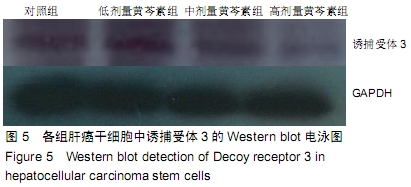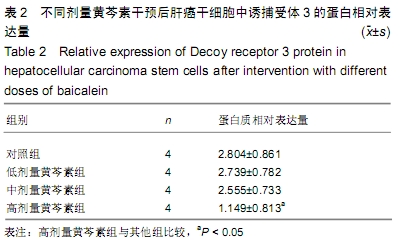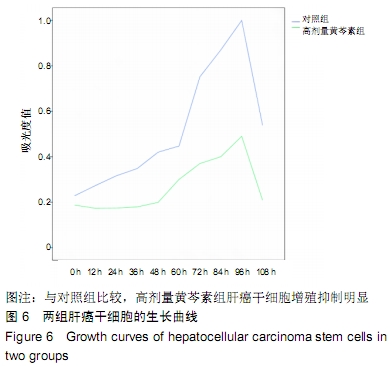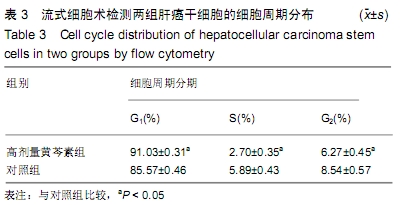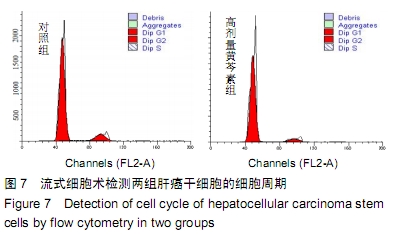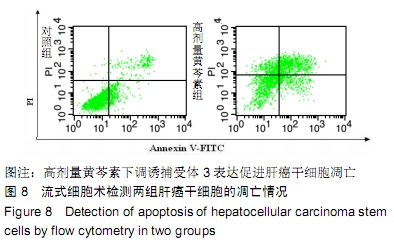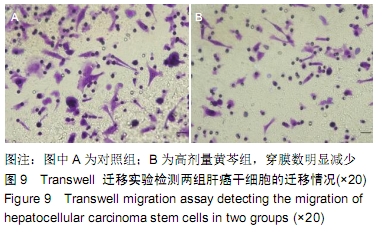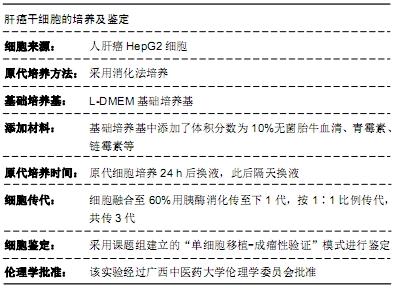中国组织工程研究 ›› 2020, Vol. 24 ›› Issue (7): 1023-1029.doi: 10.3969/j.issn.2095-4344.2017
• 肿瘤干细胞 cancer stem cells • 上一篇 下一篇
黄芩素能下调诱捕受体3表达抑制肝癌干细胞的生物学行为
岑妍慧1,2,3,夏 猛1,贾 微1,罗伟生1,林 江1,陈松林2,陈 炜3,刘 鹏1,黎明星1,李景云1,李曼莉1,艾丁丁1,蒋云霞1
- 1广西中医药大学,广西壮族自治区南宁市 530001;2广西中医药大学第一附属医院,广西壮族自治区南宁市 530023;3广西中医药大学广西中医基础研究重点实验室,广西壮族自治区南宁市 530001
Baicalein inhibits the biological behavior of hepatocellular
carcinoma stem cells by downregulation of Decoy receptor 3 expression
Cen Yanhui1, 2, 3, Xia Meng1, Jia Wei1, Luo Weisheng1, Lin Jiang1, Chen Songlin2, Chen Wei3, Liu Peng1, Li Mingxing1, Li Jingyun1, Li Manli1, Ai Dingding1, Jiang Yunxia1
- 1Guangxi University of Chinese Medicine, Nanning 530001, Guangxi Zhuang Autonomous Region, China; 2First Affiliated Hospital of Guangxi University of Chinese Medicine, Nanning 530023, Guangxi Zhuang Autonomous Region, China; 3Guangxi Key Laboratory of Basic Research in Traditional Chinese Medicine, Guangxi University of Chinese Medicine, Nanning 530001, Guangxi Zhuang Autonomous Region, China
摘要:
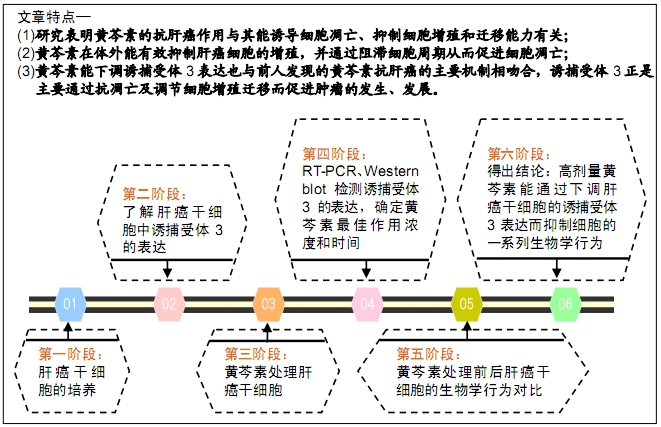
文题释义:
诱捕受体3:1998年Pitti在搜索表达序列标签数据库时发现一组与肿瘤坏死因子受体超家族成员同源的表达序列标签,诱捕受体3基因位于人染色体20q 13.3,已知此区域在人类肿瘤发生过程中与基因的扩增和重组有关。
肿瘤干细胞:与正常组织一样,肿瘤组织由处于各种不同分化程度的细胞组成,其中存在一部分独特的具有自我更新和分化功能的干细胞样亚群并将之称为肿瘤干细胞,又称肿瘤起始细胞或成瘤性癌细胞。
背景:目前尚未见有关以肝癌干细胞为靶向的中草药抗肝癌机制的报道,因此有必要展开相关研究。
目的:探讨黄芩素对肝癌干细胞诱捕受体3表达的影响,以及下调诱捕受体3表达对肝癌干细胞生物学行为的影响。
方法:按照课题组之前建立的技术方法,从肝癌细胞株(购自中国科学院上海细胞库)中获得肝癌干细胞。将肝癌干细胞分为黄芩素高、中、低剂量组以及对照组,黄芩素高、中、低剂量组分别用含200,100,50 μmol/L黄芩素的L-DMEM培养基培养,对照组仅用L-DMEM培养基培养。采用RT-PCR、Western blot检测黄芩素处理后诱捕受体3 mRNA和蛋白表达变化,采用CCK8法、流式细胞术、Transwell法检测肝癌干细胞增殖、细胞周期分布、凋亡和迁移情况。
结果与结论:①与对照组相比,高剂量黄芩素能显著下调肝癌干细胞诱捕受体3的mRNA和蛋白表达,因此确认高剂量黄芩素为最佳作用浓度;②与对照组相比,高剂量黄芩素组肝癌干细胞的增殖能力明显下降,S期和G2期细胞比例增加,而G1期的细胞比例则减少(P < 0.05);③与对照组相比,高剂量黄芩素组肝癌干细胞的凋亡率明显增加,迁移能力明显下降;④结果表明,高剂量黄芩素能通过下调肝癌干细胞的诱捕受体3表达而抑制细胞的一系列生物学行为,为临床上以诱捕受体3为靶点,以肝癌干细胞为对象进行肝癌治疗提供了实验依据。
ORCID: 0000-0002-6020-0616(岑妍慧)中国组织工程研究杂志出版内容重点:干细胞;骨髓干细胞;造血干细胞;脂肪干细胞;肿瘤干细胞;胚胎干细胞;脐带脐血干细胞;干细胞诱导;干细胞分化;组织工程
中图分类号:
